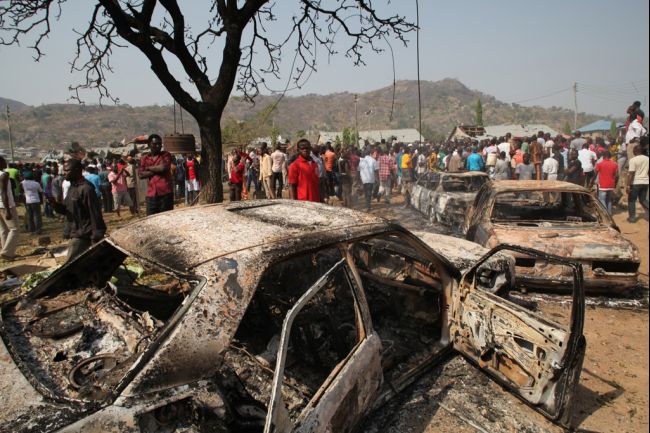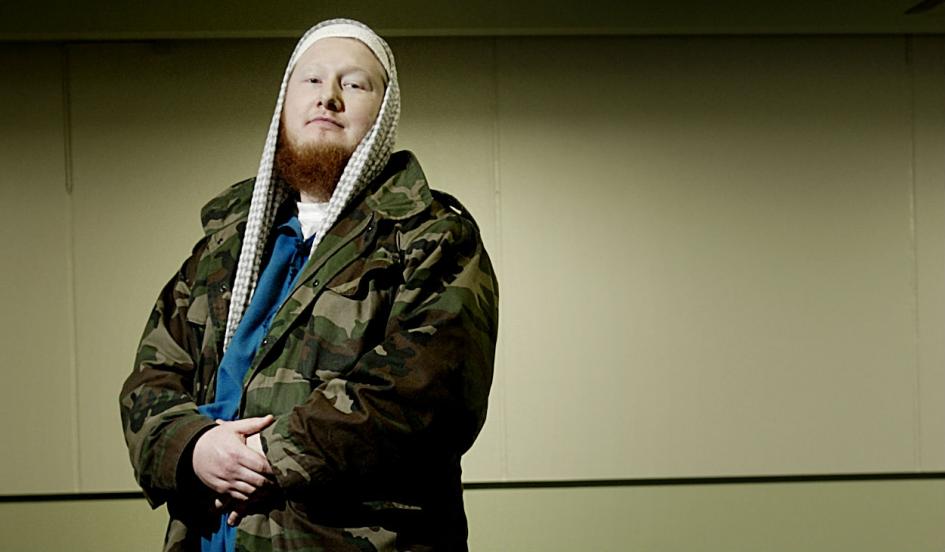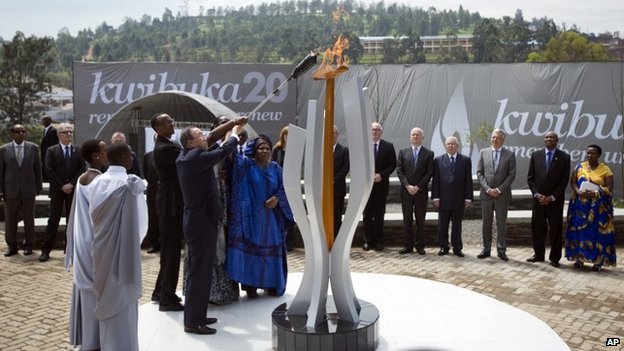Last week, Minister of Foreign Affairs John Baird condemned a recent attack that left as many as fifty students dead at the College of Agriculture in Yobe, Northern Nigeria. The attack is widely alleged to have been perpetrated by Boko Haram, a Nigerian extremist group that has launched a spree of attacks in Nigeria this summer. Boko Haram claimed responsibility for at least fifty attacks between 2009, when it began offensive operations, and the beginning of 2012. This insurgency, its evolution, and its regional connections raise troubling questions for the future of Nigeria and Africa’s Sahel region, as well as politically difficult questions for policymakers with concern for and interests in West Africa, including Canada.
What is Boko Haram?
[captionpix align=”right” theme=”elegant” width=”330″ imgsrc=”http://natoassociation.ca/wp-content/uploads/2013/10/kano-bus-bombing.jpg” captiontext=”In March 2013, Boko Haram attacked buses in Keno, Nigeria, carrying mostly Christian passengers.”]
Boko Haram translates roughly to, “Western education is sinful”. The organization is believed to have been founded in Nigeria in 2004, and staged an uprising in 2009, leaving close to 1000 people dead. Experts opine that the group lacks a cohesive structure, an opinion Nigerian president Goodluck Jonathan shared in 2012 when he said that he could not negotiate with the group as, “[they] are faceless.”
Notwithstanding a murky organizational structure, the violence perpetrated by Boko Haram since 2009 speaks to the concreteness of its aims: the implementation of sharia law in Nigeria, a goal it shares with other insurgent and terrorist groups across the Sahel region of Africa, including al-Qaeda in the Islamic Maghreb (AQIM), and Al-Shabaab, the group responsible for killing more than 60 people in a mall attack in Nairobi last week.
Boko Haram and Affiliates Throughout Africa’s Sahel
While Boko Haram’s operations are largely domestic, concern is rising among African politicians that it and groups like it are increasingly associating with one another for training and operational purposes.
This fear has clearly manifested into reality in Northern Mali. Boko Haram militants aided Islamist Tuareg rebels in their fight against Mali’s security forces last year. AQIM, another participant in the Malian conflict, and the group responsible for the 2008 kidnapping of Canadian diplomat Robert Fowler, have also stated explicitly that it collaborates with Boko Haram. Independent sources confirm that Boko Haram has received training and weaponry in Northern Mali. The director of information at Nigeria’s defense ministry went so far as to say that no meaningful distinction exists between Boko Haram and groups such as AQIM, operative in Mali.
[captionpix align=”left” theme=”elegant” width=”300″ imgsrc=”http://natoassociation.ca/wp-content/uploads/2013/10/Sahel_Map-Africa_rough.png” captiontext=”Groups such as Boko Haram and its affiliates roam with relative impunity in Africa’s Sahel region, pictured above.”]
Collaboration between these groups beyond the gaze of African governments is made possible by porous borders, inadequate security, and vast deserts throughout the Sahel region of Africa, stretching from Mauritania in the West to Eritrea in the East.
As a result of the escalating threat posed by insurgents, the putting-down of domestic insurgencies is now a draining and urgent priority for politicians across the Sahel region. This year alone, military spending in North Africa jumped 7.8 percent.
What is the West to do?
To this point, the rise of extremist groups in Western Africa has been met with relative seriousness in the capitals of Europe and North America. After Tuareg rebels credibly threatened to de-secularize Mali, French forces intervened and turned the tide of the conflict. A United Nations Stabilization Mission in Mali (MINUSMA) was established in April, with a projected size of 12,000 military personnel. The conflict ended nominally with the signing of a ceasefire between the Malian government and Tuareg rebels in June, to allow for presidential elections. While Canada contributed one C-17 transport aircraft to aid in non-combat support of French and Malian operations in Northern Mali, some diplomats and politicians such as Canada’s Robert Fowler have advocated more serious support of Western African governments in their fight against extremist insurgencies. Their advocacy came both on humanitarian grounds and with justifications citing national interest, specifically rooted in Canada’s development investment and trade with nations in the Sahel.
Subsequent talks to ensure a lasting peace in Mali have, as of this week, fallen through. This, in conjunction with recent attacks across the Sahel, pointedly raises the question of what the future holds. Some analysis is dire. A report published in 2011 by the U.S. House of Representatives Committee on Homeland Security Subcommittee on Counterterrorism and Intelligence, for example, called Boko Haram an, “emerging threat to the U.S. Homeland”. If it is true that attacks perpetrated by Boko Haram and groups like it can be considered part of collaborative webs of insurgent activity spanning the Sahel, there remains much cause for alarm and action beyond steps already taken. This is especially true in the case of Boko Haram collaboration with AQIM, which is believed to have come into possession of heavy armaments in the wake of Libya’s revolution.
What, if any, long-term action will be taken by European and North American nations to stabilize the Sahel remains to be seen. What stands out as clear, however, is that the brutal attacks committed by groups like Boko Haram, Al-Shabaab, and AQIM are condemnable in the most absolute terms.




